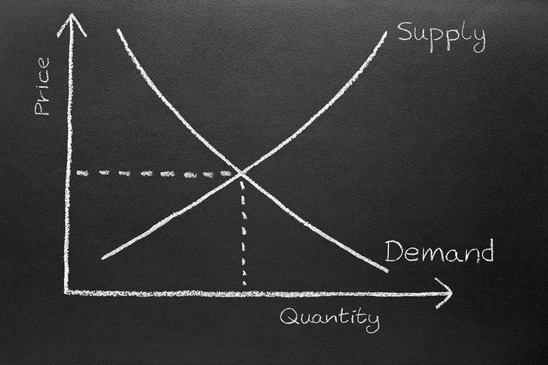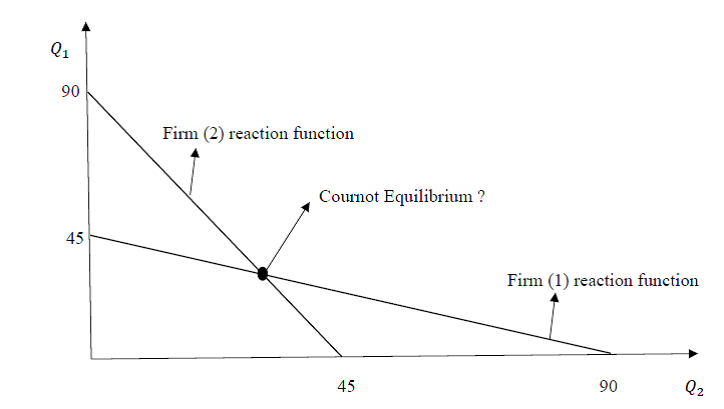- Teacher: Suzanne Groth
- Teacher: David Hoffman
Lewis & Clark Moodle
Результаты поиска: 308
reconstructing hypotheses of evolutionary history.
Modern phylogenetics relies heavily on models of
molecular evolution, thus the course includes a
foundation of molecular evolutionary theory. We
discuss applications of phylogenies including
analyses of gene family evolution, the emergence
of infectious disease, biogeography, and
coevolution. The lab centers on computational
analyses.
- Teacher: Greta Binford
- Teacher: Greta Binford
- Teacher: Greta Binford
- Teacher: Heidi Liere
- Teacher: Barbara Balko
- Teacher: Maureen Healy
- Teacher: Kirk Shepard
- Teacher: Eleanor Battison
- Teacher: Carol Doyle
Microeconomics, including supply and demand,
production theory, market structure.
Macroeconomics, including economic growth,
inflation and unemployment, money and banking,
monetary and fiscal policy. Government regulation
and policy. Discrimination and poverty, imperfect
competition, environmental problems, international
competitiveness.
- Teacher: Clifford Bekar
- Teacher: Clifford Bekar
- Teacher: Clifford Bekar
- Teacher: Clifford Bekar

- Teacher: Clifford Bekar
- Teacher: Clifford Bekar
Microeconomics, including supply and demand,
production theory, market structure.
Macroeconomics, including economic growth,
inflation and unemployment, money and banking,
monetary and fiscal policy. Government regulation
and policy. Discrimination and poverty, imperfect
competition, environmental problems, international
competitiveness.
- Teacher: Anna Miromanova
- Teacher: Aine McCarthy
- Teacher: Eric Tymoigne
- Teacher: Eric Tymoigne
Introduction to the study of market economies., Microeconomics, including supply and demand,, production theory, market structure., Macroeconomics, including economic growth,, inflation and unemployment, money and banking,, monetary and fiscal policy. Government regulation, and policy. Discrimination and poverty, imperfect, competition, environmental problems, international, competitiveness.
- Teacher: Isabella Blair
- Teacher: Aine McCarthy
- Teacher: Kiran Ayub
- Teacher: Clifford Bekar
- Teacher: Brian Dombeck
- Teacher: Kiran Ayub
probability used in the study of economics.
Descriptive statistics, probability, random
variables and their distributions, statistical
inference. Applications of statistical inference
ranging from estimating the mean from a univariate
population to multiple regression analysis.
- Teacher: William McColloch
- Teacher: Eric Tymoigne
theory. Modeling competitive situations, solution
concepts such as Nash equilibrium and its
refinements, signaling games, repeated games under
different informational environments, bargaining
models, issues of cooperation and reputation,
evolutionary game theory. Application to economics
and other disciplines. Emphasis on quantitative
modeling and analytical approaches to strategic
thinking.
- Teacher: Clifford Bekar

- Teacher: Clifford Bekar
- Teacher: Clifford Bekar
- Teacher: Clifford Bekar

- Teacher: Clifford Bekar
interrelationship with the productive sector. The
central institutions of money and banks; the
Federal Reserve System and its operation of
monetary policy; financial crises. Keynesian,
post-Keynesian, and monetarist theories and their
policy implications.
- Teacher: Eric Tymoigne
- Teacher: Eric Tymoigne
- Teacher: Eric Tymoigne
discussions of global economic events. Exploration
of the evolution of globalization and
international integration. Focus on analysis of
the concept of free trade, its advantages and
disadvantages. International trade relations
viewed through the prism of industrialized and
developing nations; variety of international
issues, such as environment protection, energy
policy, international labor laws and markets,
international cooperation, multinational
corporations, migration, and inequality.
Discussion of international monetary systems,
foreign exchange markets, and the role of
governments and central banks in shaping fiscal
and monetary policies of industrialized and
developing nations.
- Teacher: Anna Miromanova
solutions. Extent and nature of international
poverty and inequality, national and international
causes of underdevelopment, strategies for
development.
- Teacher: Clifford Bekar
- Teacher: Jack Allen
- Teacher: Aine McCarthy
- Teacher: Aine McCarthy
- Teacher: Kaia Eikenberry
- Teacher: Jeff Kain
- Teacher: Aine McCarthy
- Teacher: Aine McCarthy
structures and dynamics on the one hand, and
political strategies and struggles for change on
the other. Economic crisis theory, theories of the
state, class and class consciousness, labor, and
social-movement struggles.
- Teacher: Eric Tymoigne
- Teacher: Eric Tymoigne
- Teacher: Clifford Bekar
- Teacher: Clifford Bekar
of market failure. Demand theory, production
theory, market structure, factor pricing, general
equilibrium. Principles governing production,
exchange, and consumption among individual
consumers and firms.
- Teacher: Clifford Bekar
of market failure. Demand theory, production
theory, market structure, factor pricing, general
equilibrium. Principles governing production,
exchange, and consumption among individual
consumers and firms.
- Teacher: Clifford Bekar
- Teacher: Clifford Bekar

- Teacher: Clifford Bekar
- Teacher: Clifford Bekar
- Teacher: Clifford Bekar
- Teacher: Clifford Bekar
- Teacher: Clifford Bekar
new classical, and new Keynesian economists;
national income accounting; IS-LM analysis;
aggregate supply and demand; money, interest
rates, and investment; government spending and
taxation; fiscal and monetary policy.
- Teacher: Eric Tymoigne
new classical, and new Keynesian economists;
national income accounting; IS-LM analysis;
aggregate supply and demand; money, interest
rates, and investment; government spending and
taxation; fiscal and monetary policy.
- Teacher: Eric Tymoigne
- Teacher: Eric Tymoigne
- Teacher: Lily Cahill
- Teacher: Aine McCarthy
- Teacher: Aine McCarthy
- Teacher: Lily Cahill
- Teacher: Kaia Eikenberry
- Teacher: Aine McCarthy
- Teacher: Jack Allen
- Teacher: Aine McCarthy
- Teacher: Aine McCarthy
- Teacher: Aine McCarthy
- Teacher: Aine McCarthy
international economics; ideas and policies
governing international trade and finance. Trade
theory, foreign exchange markets, balance of
payments, transnational corporate activity.
- Teacher: William McColloch
constrained in the same way as economic units that
use a currency. Mechanics of monetary sovereignty
and their implications for public finances and
economic stability. Public debt, taxes, and
monetary financing. Real vs. financial constraints
and policy choices. Differences between sovereign
and nonsovereign governments.
- Teacher: Eric Tymoigne
- Teacher: Eric Tymoigne
- Teacher: Eric Tymoigne
- Teacher: Clifford Bekar
- Teacher: Eric Tymoigne
- Teacher: Clifford Bekar
- Teacher: Aine McCarthy
- Teacher: Aine McCarthy
- Teacher: Clifford Bekar
- Teacher: Eric Tymoigne
- Teacher: Eric Tymoigne
- Teacher: Kimberly Campbell

- Teacher: Cari Zall
- Teacher: Liza Finkel

- Teacher: Cari Zall
- Teacher: Alisun Thompson
- Teacher: Robert Unzueta
Critical and comprehensive review of education and, schooling in American society. Considers education, in its larger socioeconomic, political,, ideological, and cultural contexts and examines, race, class, gender, and culture in the formal, educational system. Analyzes issues of goals,, funding, governance, curricula, policy, staffing,, and reforms both in historical and contemporary, forms. Participants study education both as a, microcosm of society, reflecting the larger, struggles in the country, and as a, quasi-autonomous entity.
- Teacher: Robert Unzueta
- Teacher: Lina Darwich
- Teacher: Lina Darwich
- Teacher: Kayla Puente
- Teacher: Lina Darwich

- Teacher: Maika Yeigh
- Teacher: Megan Barrett
- Teacher: Megan Barrett
working successfully in the larger political,
social, economic, legal, and cultural environment
of an educational system. Examination of landmark
legal cases, federal policies, state and local
laws, and regulations impacting school systems.
Exploration of social justice avocation through
access and equity issues that promote equitable
learning for students. Discussions of the roles
and responsibilities of policy makers and
stakeholders.
- Teacher: Ben Kates
working successfully in the larger political,
social, economic, legal, and cultural environment
of an educational system. Examination of landmark
legal cases, federal policies, state and local
laws, and regulations impacting school systems.
Exploration of social justice avocation through
access and equity issues that promote equitable
learning for students. Discussions of the roles
and responsibilities of policy makers and
stakeholders.
- Teacher: Ben Kates
- Teacher: Shelly Reggiani
- Teacher: Megan Barrett
- Teacher: Megan Barrett
working successfully in the larger political,
social, economic, legal, and cultural environment
of an educational system. Examination of landmark
legal cases, federal policies, state and local
laws, and regulations impacting school systems.
Exploration of social justice avocation through
access and equity issues that promote equitable
learning for students. Discussions of the roles
and responsibilities of policy makers and
stakeholders.
- Teacher: Megan Barrett
working successfully in the larger political,
social, economic, legal, and cultural environment
of an educational system. Examination of landmark
legal cases, federal policies, state and local
laws, and regulations impacting school systems.
Exploration of social justice avocation through
access and equity issues that promote equitable
learning for students. Discussions of the roles
and responsibilities of policy makers and
stakeholders.
- Teacher: Megan Barrett
- Teacher: David Nieslanik
- Teacher: David Nieslanik
- Teacher: David Nieslanik
leaders have strong family and community
relationships. This course defines family and
community engagement for inclusive schools,
identifies the critical stakeholders, and develops
inclusive engagement and collaborative strategies.
District demographic data and needs assessments
are used for developing family and community
engagement plans while taking into account
categories of diversity (cultural, ethnic, racial,
economic, ability). The course includes
discussions of successful family and community
engagement models.
- Teacher: David Nieslanik
- Teacher: Dawn Montgomery
- Teacher: Dawn Montgomery